The third quarter (Q3) of FY24 (November 2023 – January 2024) saw the conclusion of SARTTAC’s Phase I and the beginning of Phase II. During its first phase of operations (February 2017-November 2023), SARTTAC delivered about 360 training events and 470 technical assistance (TA) missions. These capacity development (CD) activities have helped member countries (MC) in building macroeconomic frameworks in ministries of finance (MOF) and central banks; reforming revenue administration (RA) and public financial management (PFM); improving consistency, frequency and timeliness of government finance statistics (GFS), public sector debt statistics (PSDS) and real sector statistics (RSS); designing and implementing frameworks for monetary and foreign exchange operations (MONOPS); and financial sector supervision and regulation (FSR). In this period, about 8,000 officials participated in regional and customized national trainings delivered in-person as well as virtually. In addition to standard introductory and advanced courses under SARTTAC CD programs, these trainings have complemented ongoing TA projects and MC agencies’ own training programs. Emerging areas of CD such as fintech, digitalization, gender and climate were covered through standalone offerings and through modules in other trainings. Phase II will benefit from accomplishments and learnings from Phase I.
Phase II has commenced a strong note. In January 2024 alone 8 regional and national trainings were delivered. This made up over 13 percent of the FY24 annual training plan. Overall, during Q3, 33 CD activities were delivered out of which 18 were TA missions and the remaining training and other modalities. As discussed below, a first-time regional training on anti-money laundering (AML) and counter-terrorism financing (CFT) issues and a national training on monetary policy analysis for incoming economists at the Reserve Bank of India (RBI) were held during Q3. A virtual mid-year Steering Committee (SC) meeting was also organized to inform SC members of plans for Phase II and to introduce the new SARTTAC Director Ms. Giorgia Albertin who replaced Mr. David Cowen on February 1, 2024. Mr. Cowen has moved back to IMF headquarters as an Advisor in the IMF Asia and Pacific Department (APD). Mr. Cowen shares a few words on his time at SARTTAC here
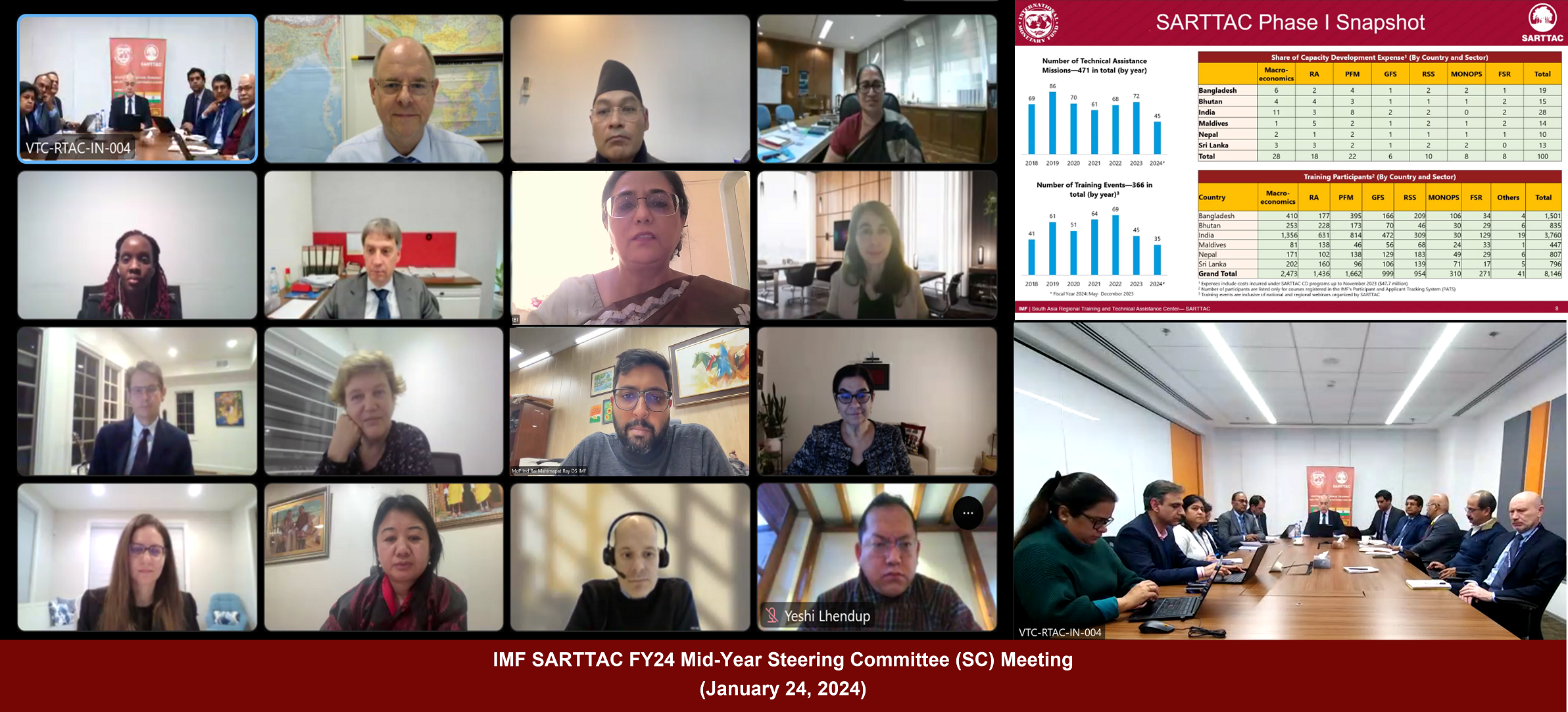
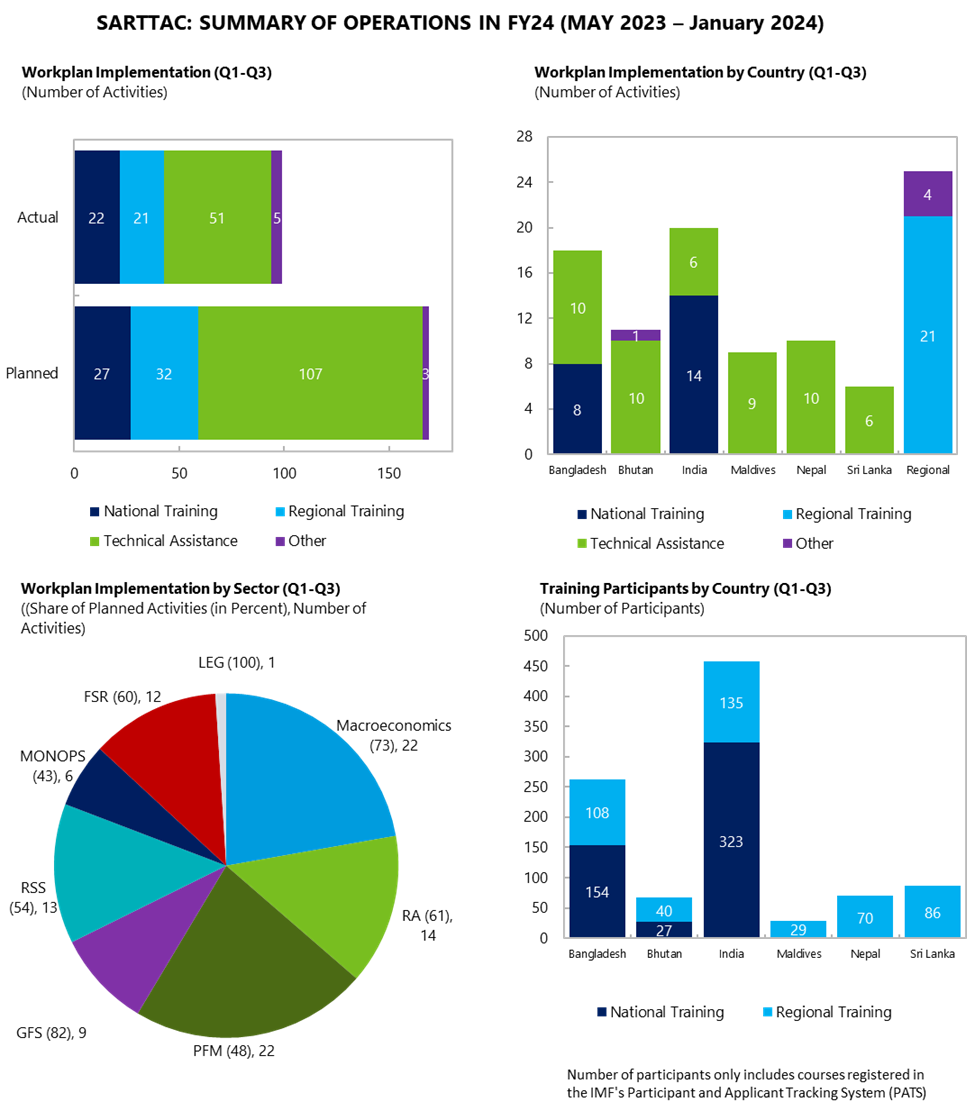
During Q3 FY24, 7 national and 7 regional trainings were delivered and are listed here. In November, officials from Department for Promotion of Industry and Internal Trade and the Ministry of Statistics and Programme Implementation in India received training on compiling producer price indexes (PPIs) for services activities (November 6-10, 2023). The training, organized in collaboration with the IMF Statistics Department (STA), included a general overview of the scope and coverage of these statistics, ideal sources for weights, index calculation methods, quality adjustment, and linking data series. Sessions on PPIs for specific activities, such as education, health care, telecommunications, and transportation were also conducted. Participants also completed some hands-on work to develop new input PPIs. In early December, a regional training on quarterly national accounts and seasonal adjustment (December 11-15, 2023) benefitted officials from central statistical organizations (CSO) which are in the process of producing more timely and higher frequency national accounts data. Under a new project with the IMF Legal Department (LEG), a training introduced recent revisions to the international AML/CFT standards (January 8-12, 2024) was delivered. It focused on topics like the transparency of beneficial ownership information (Financial Action Task Force (FATF) Recommendations (Rs.) 24 and 25) and AML/CFT considerations related to virtual assets and virtual asset service providers (FATF R.15). SARTTAC’s deepened its engagement with the RBI with a two-week training for incoming economists. The training, held in Mumbai, was customized to include sessions related to monetary policy, forecasting and nowcasting. It emphasized theory, empirical evidence, and operational experience through hands-on workshops. Finally, SARTTAC and IMF’s Capacity Development Office in Thailand (CDOT) jointly organized a course on monetary policy implementation (January 29-February 2, 2024) which allowed exchange of experience among central bank officials from south and south-east Asia.
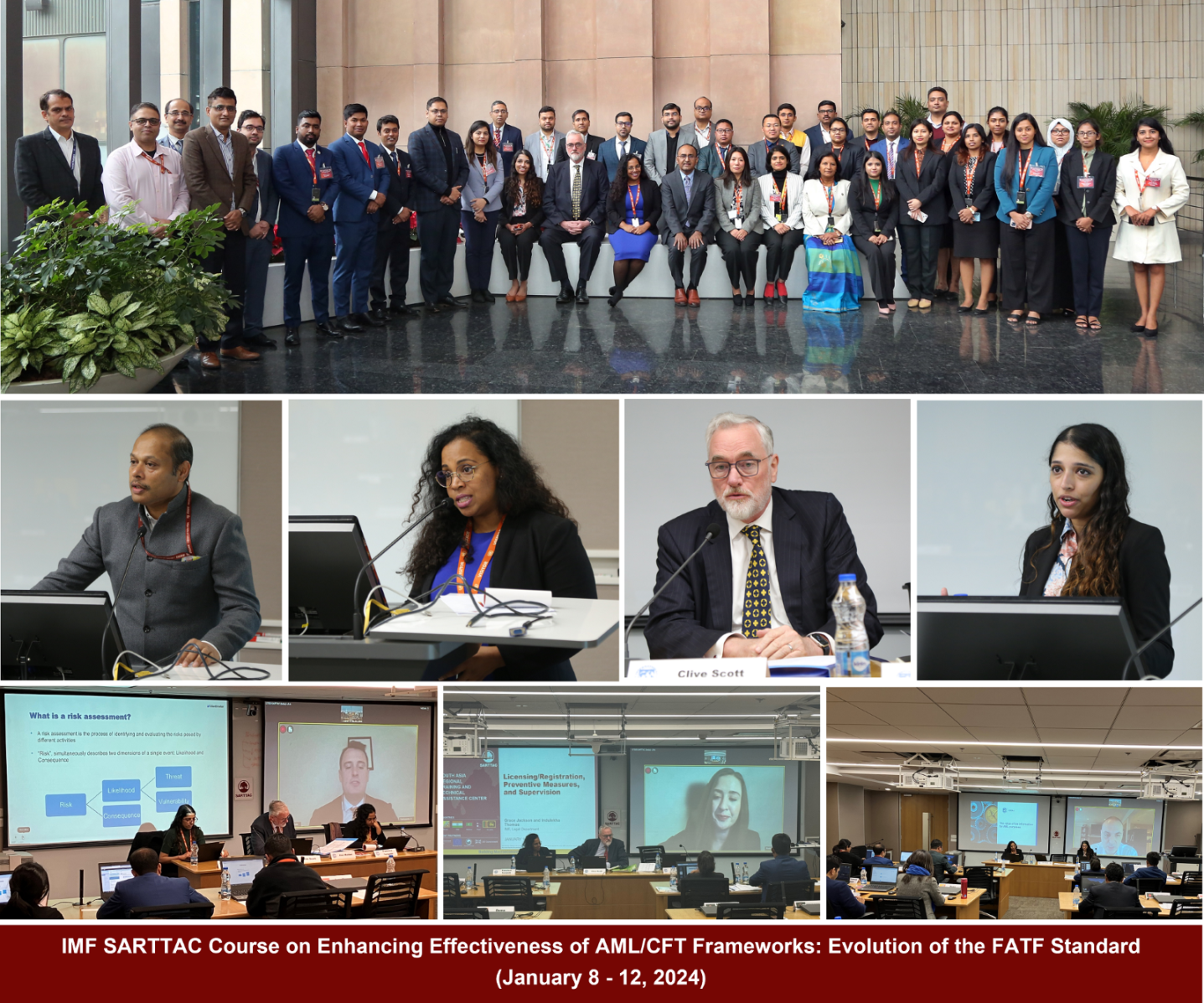
In addition, 18 TA missions commenced in FY24 Q3, with a complete list here. In Bhutan, following a scoping mission (November 20-24, 2023), a GFS mission (January 22-26, 2024) assisted authorities in compiling annual GFS. The mission also delivered a training to Treasury Department officials to help them understand the GFS framework and its application to MOF’s annual financial statements and quarterly public debt situation report. Under a new program, the first SARTTAC led TA mission (November 20-29, 2023) visited the Finance Department of the Indian state of Assam. The mission followed an initial PFM training and an IMF Fiscal Affairs Department led diagnostic mission completed earlier in 2023. The mission focused on advancing the efforts on performance budgeting by strengthening indicators published in the outcome budget documents and improving budget documentation. In Nepal, a mission (December 19-21, 2023) resumed TA with the Nepal Rastra Bank on risk-based supervision of banks and built on work done prior to the pandemic and webinars delivered virtually during and after the pandemic. Additionally, a revenue administration mission (November 27-December 8, 2023) helped revenue authorities in developing an action plan in response to a December 2022 Tax Administration Diagnostic Assessment Tool assessment. This action plan will contribute to the revenue mobilization strategy – a structural benchmark under the Extended Credit Facility program with Nepal. In Sri Lanka, TA on strengthening of the balance sheet risk assessment framework of the Central Bank of Sri Lanka was delivered (November 6-17, 2023).
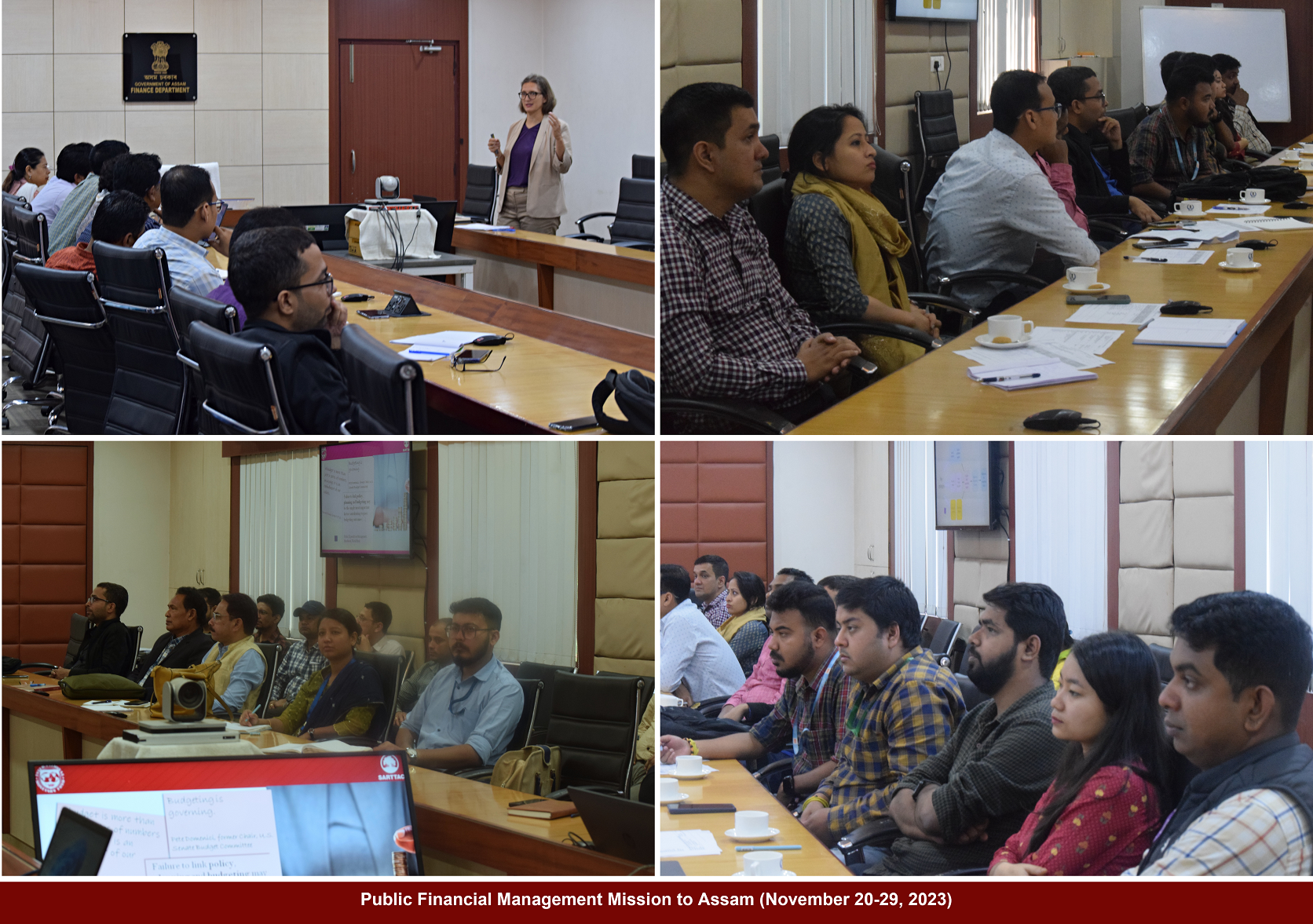
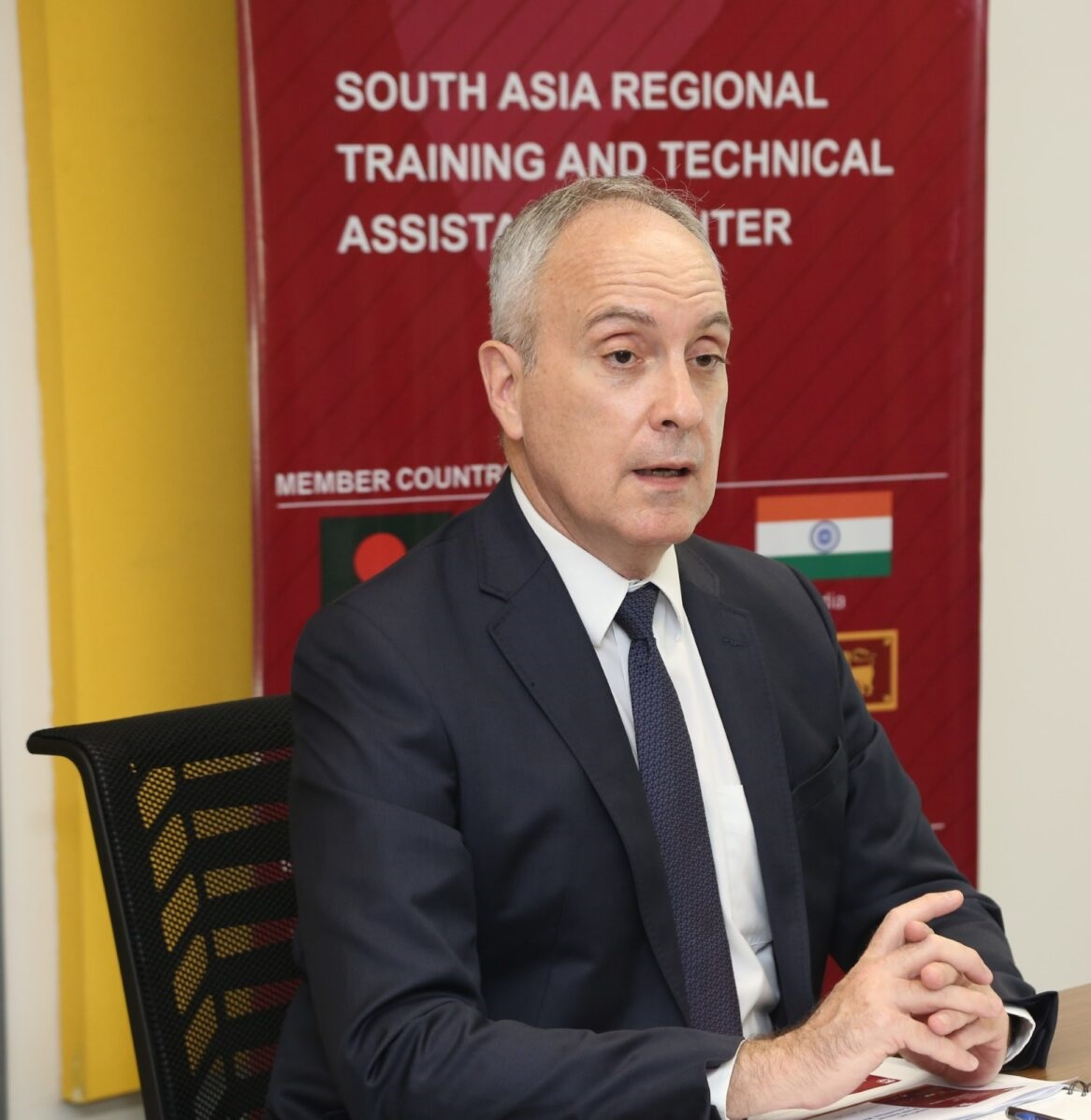
My assignment in SARTTAC concluded at the end of January 2024 at the behest of the IMF Asia and Pacific Department. While it was an earlier departure than I had expected, the three-plus years that I was associated with the Center as the Director were marked by different transitions that needed to be managed—the pandemic-related move from remote to in-person delivery; the capacity development (CD) needs that came with intensifying program engagement with the Fund in the region, notably with Bangladesh, Nepal, and Sri Lanka; the fundraising for and transition to Phase II of SARTTAC’s operations; and, toward the end of my tenure, the start of the eventual relocation of the Center to a new facility in New Delhi. Lastly, all was done as the management of CD in SARTTAC and the IMF’s 16 other regional capacity development centers (RCDCs) fully transitioned to the Fund’s Capacity Development Management and Administration Program (CDMAP)—no small fete in and of itself, which standardized the operational terrain for undertaking training and technical assistance (TA).
During my time in SARTTAC, the Center also had 100 percent turnover in the deputy director and long-term expert (LTX) positions, as the second generation of these staff (and in a few cases the first) reached the end of their tenure. All could not have been managed without a very dedicated group of local and vendor staff, who adapted remarkably well to these changes, including disruptions posed by the pandemic. As a result, on-boarding was a nearly continuous process, especially as more than half of the newly hired LTXs had never worked for the Fund. However, that itself came with rewards, as most, including four hired from India during my tenure, were coming directly from official postings in finance ministries, central banks, or statistical agencies, which gave them a very contemporary perspective on building capacity.
My own assignment started from Bangkok in September 2020, where I had previously held the position of Director of the IMF Capacity Development Office in Thailand (CDOT). Because of the pandemic, the IMF did not authorize me to enter India. However, I asked to stay in Thailand to manage SARTTAC from remote, given the 90-minute time difference with India, rather than repatriate to the U.S. and run the Center from there, since much to my surprise, Washington DC was designated as my temporary duty station. While SARTTAC’s international staff were dispersed from Hawaii around the world to Australia, being in Thailand was the “second-best” option, allowing me to be in real-time contact on most days with local staff and country authorities. Despite this, it came as a personal sacrifice in not being with family in the U.S. during this period.

Finally, in October 2021, I was authorized to enter India. The immediate task was to deal with challenges faced in the remote delivery of CD, with interest of member countries waning in this modality, and getting international staff back into India and all of us safely into the office. After overseeing a pandemic-related remodeling project of the Center (remember distancing) and with the support of local staff and the IMF Institute for Capacity Development (ICD), SARTTAC was the Fund’s first regional training center to resume regular in-person training. I found a lot of satisfaction in working closely with ICD and the IMF Corporate Services and Facilities Department, both which provided great guidance throughout my tenure, in this instance to ensure protocols were in place to protect the safety of participants, faculty, and staff, which we did very successfully from March 2022 onwards with the launch of an in-person nowcasting course and a month later with the resumption of in-person TA missions.
Throughout my tenure, I always thought about how to bring the greatest value to our external stakeholders, whether member countries or development partners, given the preciousness of outside resources provided to the IMF for our work in CD (and SARTTAC’s nearly 100 percent reliance on such). Our responsiveness to training and TA needs was especially important as we transitioned from Phase I to Phase II of our operations in 2023, which also coincided with intensifying CD needs in the program countries. India was fantastic in pledging $50 million to the second phase, and it is my hope that other countries and partners will show their own generosity in due course, notwithstanding a more challenging fund-raising landscape now, in part because of greater demands on country finances than existed at the time of SARTTAC’s start-up. External support—big or small—is essential to SARTTAC’s sustainability and growth in the region as the preeminent provider of capacity building in macroeconomic management and analysis, but it should also be met with more internal resources from the IMF to help meet rising demand for CD, including in new areas like climate, to ensure the continuity in the Center’s operations.
My time as Director is one that I will always remember both for its rewards and challenges. It was by far the most intense position from a work perspective that I had ever had in my more than 30 years with the IMF, notably given the size of office, the demands from member countries, and dual role of SARTTAC as a regional training and TA center. As colleagues know who head other IMF RCDCs, as the director, you are the one (and likely only) person who has the complete operational picture—budget, plans, and execution. Sometimes, you may step on a few toes in making everything fit within the available resources while balancing individual country needs, development partner requirements, and HQ expectations. My advice is not to lose sight of delivery—the most important aspect of our work, keeping that itself focused around your LTXs, which requires taking a keen interest in their work to ensure they have the support needed to design and implement their CD programs.
To conclude, the effectiveness of the work in SARTTAC, in my view, is best done and most rewarding through face-to-face contact, which I will miss, whether with local colleagues, member country and partner officials, or HQ staff and other CD providers, to hear concerns, build trust, and adapt operations, as required. Because of the need to manage different transitions (and given earlier restrictions), my travel to member countries was more limited than expected, but I was honored to visit all, including Bhutan and Maldives for the first time, as well as the Indian states of Odisha, Tamil Nadu, and Assam on multiple occasions, given SARTTAC’s unique engagement at the subnational level in India. In each, the time, insights, and hospitality of officials was greatly appreciated. Finally, I enjoyed immensely the opportunity to live in one of the world’s great cities and take in the sights and culture there and throughout the region. Yes, everyone knows about the air in Delhi, but the chance to observe and be a part of India and other countries’ dynamic transition to middle-income economies was a privilege, and, with the right capacity, can be a shared success with SARTTAC in the years ahead.
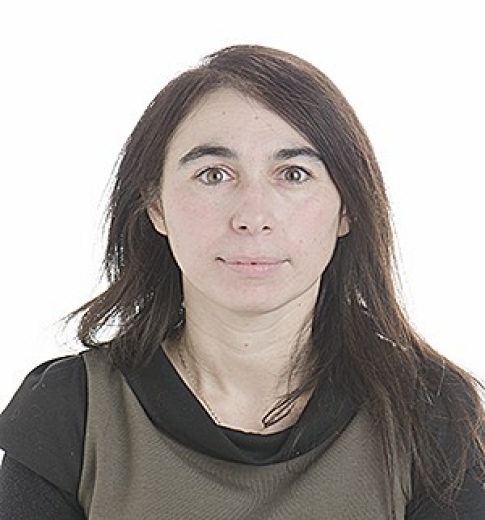
Giorgia Albertin joined as the Director of SARTTAC in February 2024. She has extensive experience working on emerging markets, low-income and fragile economies and conducting surveillance, lending programs and capacity building. Previously, she served as Advisor in the IMF's Asia and Pacific Department and Deputy Division Chief in the African Department. She was the IMF mission chief for Mauritius, Namibia, Eswatini and Guinea, and IMF Resident Representative for Tunisia. She also held various positions in the IMF’s Middle East and Central Asia, IMF Institute and Strategy Policy and Review departments. She also spent two years at the European Bank for Reconstruction and Development. Her research interests focus on gender inequality, fragile and conflict states, regional integration, and energy subsidies. She holds a PhD. in Economics from the London School of Economics & Political Science.
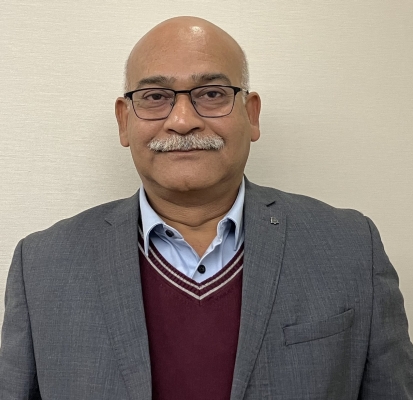
Naresh Jha joined SARTTAC in January 2024 as a Public Financial Management (PFM) Advisor. During his professional career spanning 27 years, he has held senior financial management positions in the public sector in the Government of India, including as Director Budget and Director in the Finance Commission of India. He also worked earlier for the IMF as Regional PFM Advisor in AFRITAC West 2 (January 2018 to January 2023), based in Accra Ghana, delivering and leading PFM technical assistance missions in six West African countries. His work areas have included budget preparation, budget execution, PFM legal and institutional reforms, fiscal risks management, accounting and auditing, and state-owned enterprise reforms.
More articles from the same issue
- Technical Assistance
- Training and Webinars
- Technical Assistance Reports Disseminated on Partners Connect during FY24 Q3
Previous Issues <
